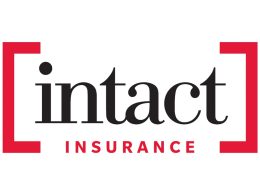by William Smead, Smead Capital Management
We have been discussing keys to the investment success of Warren Buffett and Berkshire Hathaway as we approach the 2013 annual meeting. In this week’s edition, we are considering a company which might make a good “elephant” for Berkshire to buy.
Many years ago, Warren Buffett laid out the criteria for acquiring entire businesses. As the company has grown, the acquisition size has increased.
We are eager to hear from principals or their representatives about businesses that meet all of the following criteria:
(1) Large purchases (at least $25 million of before-tax earnings),
(2) Demonstrated consistent earning power (future projections are of no interest to us, nor are ”turnaround” situations),
(3) Businesses earning good returns on equity while employing little or no debt,
(4) Management in place (we can’t supply it),
(5) Simple businesses (if there’s lots of technology, we won’t understand it),
(6) An offering price (we don’t want to waste our time or that of the seller by talking, even preliminarily, about a transaction when price is unknown).
We love the way that Buffett’s criteria for purchases matches with the “high quality” attributes in Ben Inker’s study which we discussed in last week’s missive. Consistent earning power and low leverage are two of the factors which provided long-term alpha over a 24-year stretch. We also enjoy the fact that Buffett’s criteria seeks out high-quality and deep undervaluation for being a business owner.
Aflac (AFL)-Our Recommended “Elephant” for Berkshire
Aflac is the kind of high-quality business which Warren Buffett likes to own. It has a great brand and brand representative, the duck. Think of how similar it is to GEICO and the gecko. While Geico collects auto insurance premiums, Aflac collects supplemental health insurance premiums. Both companies invest the premiums in multi-billion dollar portfolios. Aflac dominates the supplemental health insurance business in Japan and is the number one company in the business in the US.
Their common stock has been a wealth creator over the last 32 years. It went public in November of 1980 at a split adjusted price of $.18 per share. With the current price around $49 per share, Aflac has produced an average gain each year of around 19%.
Since valuation matters dearly to Warren Buffett, Aflac is a very attractive stock based its Price-to-Earnings (P/E) history, Price-to-Book Value (P/B) history and on a 10-year Schiller P/E smoothed basis. Our recent analysis of the Schiller P/E indicates that Aflac trades below 12.8 times earnings versus the market at 18.6 Schiller P/E. As you can see below, Aflac is very cheap in relationship to its recent history:

We believe that an enormous opportunity exists for Aflac in the US over the next 20 years. America is making a subtle move toward a single-payer health system and before then, major companies are raising health care deductibles to pass some of the huge expense of healthcare to their employees. We believe Aflac is the best branded company in supplemental health insurance in the US. In our travels, we have yet to find someone who can name their number two competitor (Continental). It looks to us like a great place to be a business owner.
Aflac has a strong balance sheet and its history as a company stretches all the way back to 1955.

There are probably two big obstacles to a Berkshire Hathaway purchase of Aflac. First, Aflac would have to call Warren Buffett with a set price. Second, Berkshire would have to sell other existing positions to handle an acquisition of up to a $48-billion dollars and keep their normal $15 to 20 billion in cash.
On the other hand, we see two big negatives at the moment for Aflac which Berkshire Hathaway could handle more easily. They have a huge investment portfolio which is a hard to manage and has been very difficult the last five years. Buffett is in the process of training two underlings to handle the billions of dollars that Berkshire Hathaway collects each year. We believe that Berkshire could add as much as 2% per year to the investment results of Aflac’s portfolio by taking better risks and using the immense balance sheet of the parent company to spread risk. Lastly, if the yen falls in value, the large profits from their Japanese insurance business gets reduced by currency translation. We believe that the growth opportunities in the US and the incredibly cheap current price of Aflac’s common stock offset the risk associated with the yen’s weakness. Therefore, we like Aflac for the long run, even if it does not become Berkshire Hathaway’s next “elephant”.
Next Week on the Road to Omaha: Volatility or Wealth Creation
Best Wishes,
William Smead
The information contained in this missive represents SCM’s opinions, and should not be construed as personalized or individualized investment advice. Past performance is no guarantee of future results. It should not be assumed that investing in any securities mentioned above will or will not be profitable. A list of all recommendations made by Smead Capital Management within the past twelve month period is available upon request.
This Missive and others are available at smeadcap.com
Copyright © Smead Capital Management










